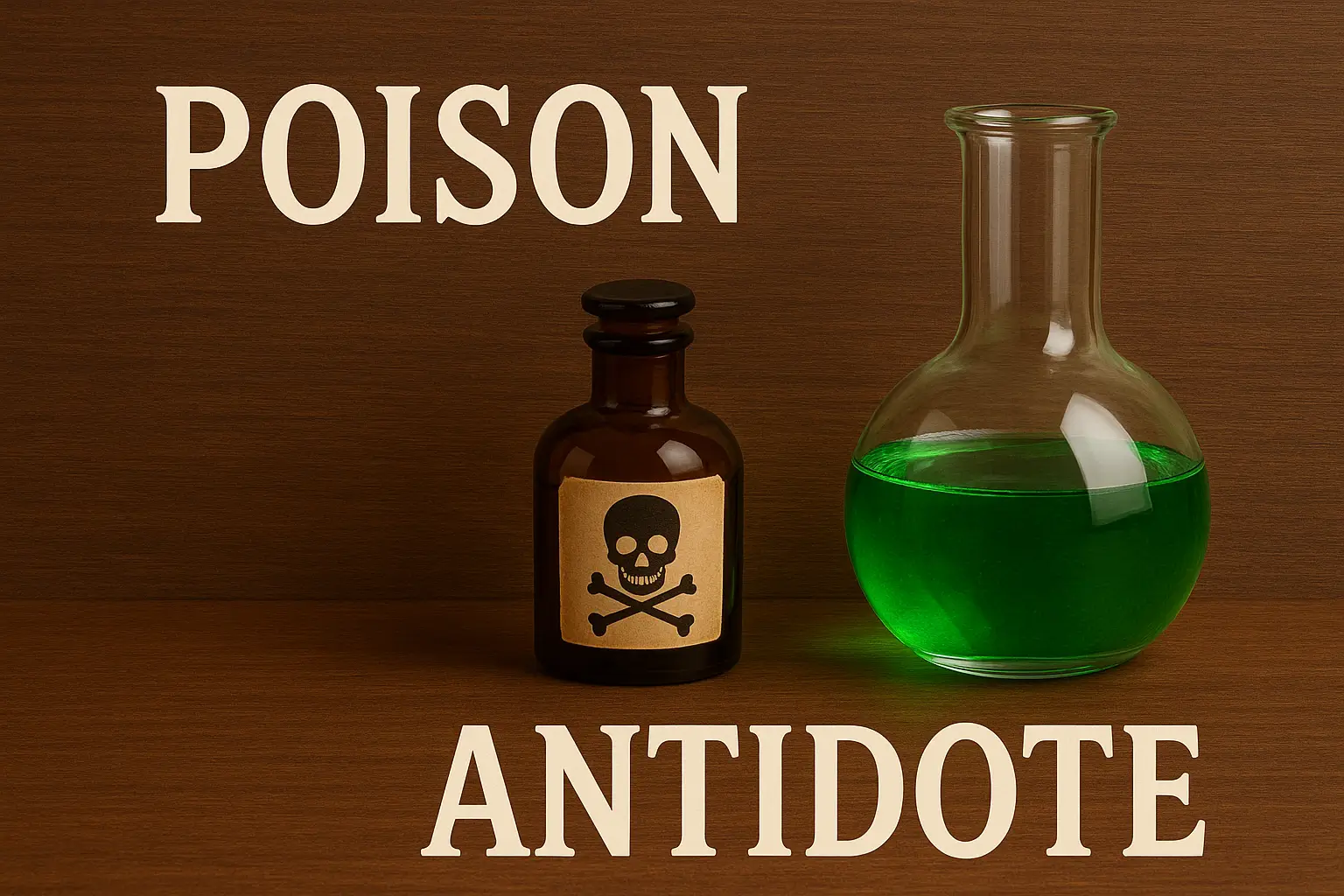A poison is a harmful substance that can cause illness or death, while an antidote is a remedy that counteracts or neutralizes the effects of a poison
Poison
-
Definition:
- A poison is any substance that can cause harm or death when introduced into or absorbed by a living organism.
-
Sources:
- Poisons can originate from chemicals, plants, animals, and medications.
-
Effects:
- The impact of a poison depends on factors such as its nature, the amount absorbed, mode of exposure, and individual characteristics of the person exposed (age, health status, genetics).
This is a sample ad placement!
Antidote
- An antidote is a substance that counteracts the effects of a poison, reducing or eliminating the harm caused.
-
Mechanisms of Antidotes of Antidote
-
Neutralizing the Poison:
- Directly neutralizes the poison’s effects.
- Example: A weak base can neutralize strong acid ingestion.
-
Binding to the Poison:
- Binds to the poison, rendering it inactive or less toxic.
- Example: Activated charcoal absorbs and prevents the absorption of poisons in oral poisoning.
-
Enhancing Poison Elimination:
- Increases the rate of poison elimination from the body.
- Example: Chelating agents bind to heavy metals (e.g., lead, mercury) for excretion.
-
Reversing the Poison’s Effects:
- Reverses the physiological effects of the poison.
- Example: Naloxone reverses respiratory depression caused by opioid overdose.
-
Providing an Essential Compound:
- Supplies or mimics a compound depleted by the poison.
- Example: Vitamin K is used to counteract warfarin poisoning by replenishing clotting factors.
-
Examples of Poisons and Their Antidotes
-
Acetaminophen (Tylenol) Overdose:
- Antidote: N-acetylcysteine (NAC)
- Action: Replenishes glutathione stores, helping to detoxify the harmful metabolite of acetaminophen.
-
Opioid Overdose:
- Antidote: Naloxone
- Action: Rapidly displaces opioids from their receptors, reversing effects, especially life-threatening respiratory depression.
-
Benzodiazepine Overdose:
- Antidote: Flumazenil
- Action: Blocks the effect of benzodiazepines on the GABA receptor, reversing sedation.
-
Organophosphate Poisoning (Certain Pesticides):
- Antidotes: Atropine and Pralidoxime (2-PAM)
- Action: Atropine relieves muscarinic symptoms, while pralidoxime reactivates acetylcholinesterase, which is inhibited by organophosphates.
This is a sample ad placement!
Thank you for reading from Firsthope's notes, don't forget to check YouTube videos!

